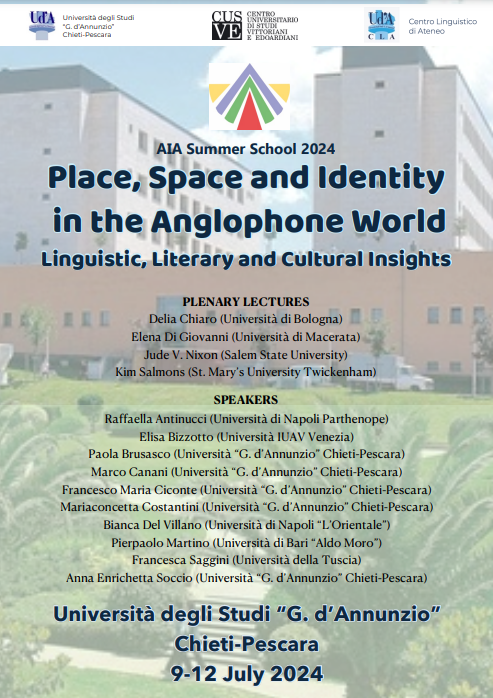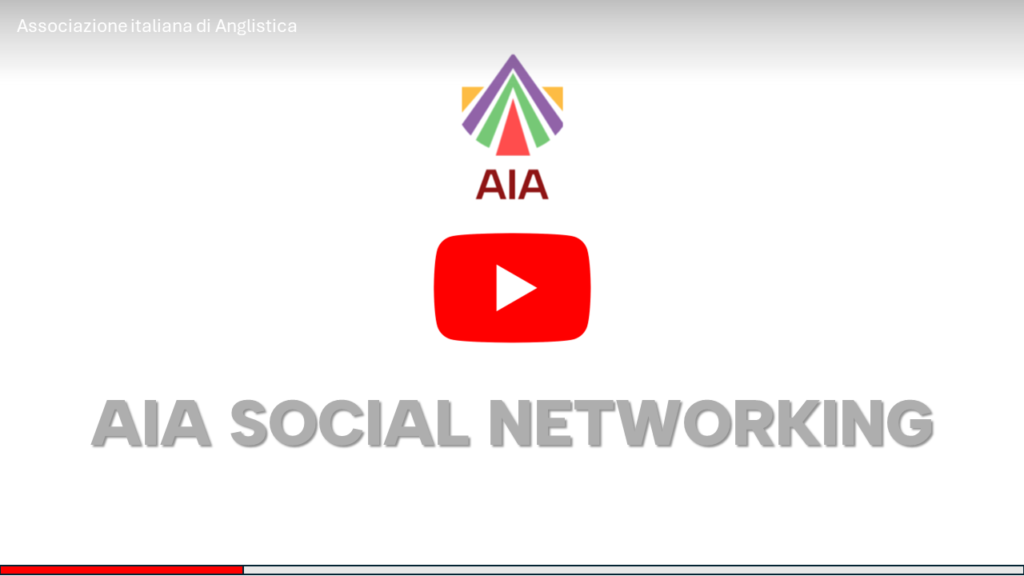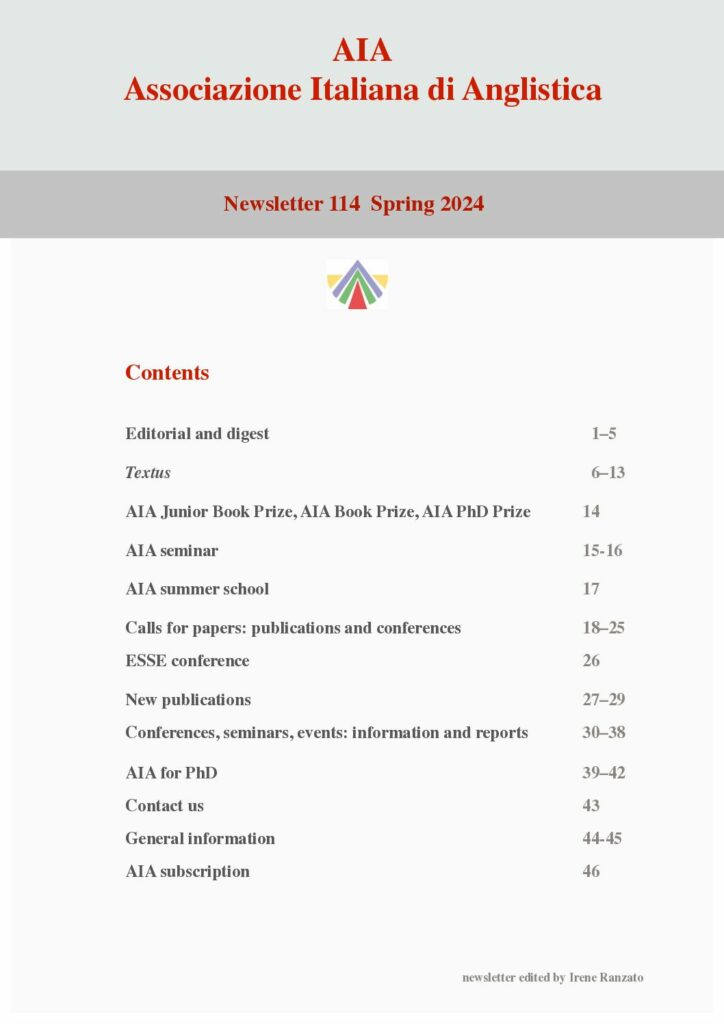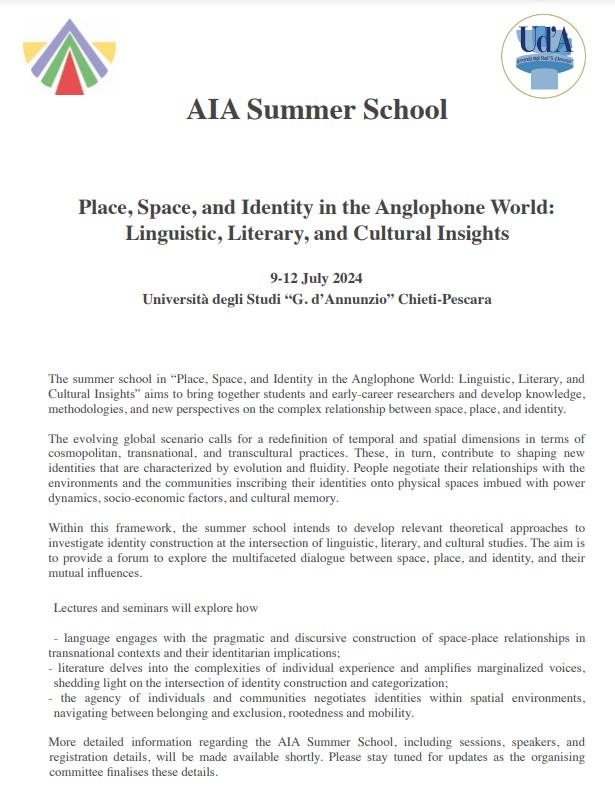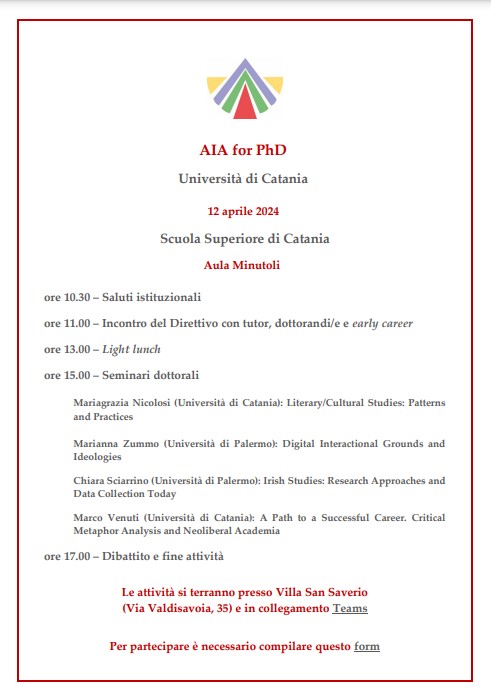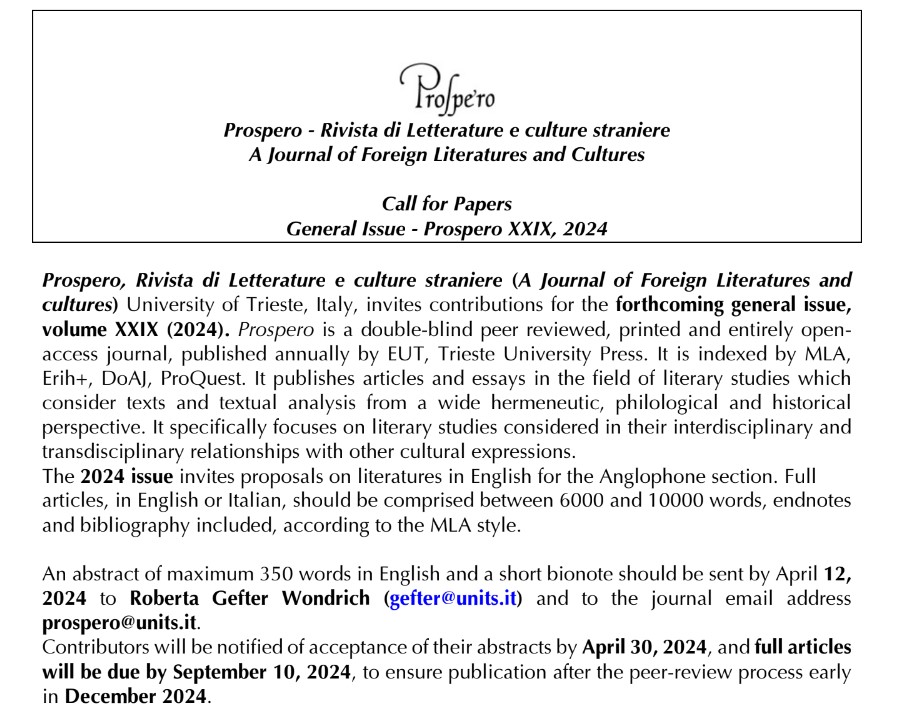BRNO Studies in English, Special Issue (proposed date, 2025) Encounters with Water: An Ecolinguistic perspective Environmental issues have seldom ranked higher in the agendas of public debate. The emergent research paradigm of Ecolinguistics (Fill and Mühlhäusler 2001, Fill and Penz 2018) represents the response to the crisis by ecologically-minded linguists, who may critique underlying socio-cognitive frameworks (Halliday 1990) or dominant anti-ecological narratives (Stibbe 2015). Within this framework, the topic of water occupies a place that is hard to define: though manifestly essential to the survival not just of the human species but to all life forms supported by the Earth, it somehow slips away from our attention. To most first worlders it represents a gift that may easily be taken for granted, while indigenous peoples may be only too aware of issues with access to it (Jackson 2018). Eco-awareness in contemporary social movements is frequently associated with the colour green – with plants, trees, flowers, forests – yet these features of the lifescape depend on the nourishing presence of water, its natural cycles and rhythms. Underlying Ecolinguistics are a range of philosophical and spiritual positions that have been characterised by Norwegian philosopher Arne Naess (1973) as consisting in either ‘shallow’ or ‘deep’ ecological perspectives. In the context of water, the former would refer to social practices that aim to guarantee access to this essential resource for human purposes like drinking, bathing or washing clothes. Such aspects reflect the instrumental view of Nature that typifies our current relationship with water as a resource, primarily as something that has an instrumental value. Deep ecology values water in a more profound sense. Of course, it would value and ‘venerate’ all the ‘ways and forms of life’ (Naess 1973: 95-6) that are found in seas, lakes and rivers. But more, it would seek to nurture a complete, holistic and open-hearted awareness of water as a vital element in our biosphere, and a respect for what it has represented historically and continues to represent today. Both approaches could support Ecolinguistic enquiries: for example, one could emphasise the social value of water, view it as the locus of modern territorial struggles in a context of droughts that motivate human migration. Water may be seen as a token for conflicts between industries that require water to run their factories and local populations who would rather see city parks enriched by unpolluted wetland environments. Alternatively, we could look with the eyes of artists and ecologists at water, towards those who have found spiritual meanings and unfolding identities in their ‘encounters with water’, meanings that connect denizens of the modern world with the ancient, traditional knowledge of indigenous peoples (Gottlieb 2004), and with some of the environmental voices from western literary and cultural traditions. Possible research areas for contributions include, but are not limited to, the following: Contributions should be theoretically grounded in any recognised sub-field of modern linguistics (Discourse Analysis, Pragmatics, Linguistic Ethnography, Critical Discourse Studies, Corpus Linguistics, Multimodality, Argumentation theory, Sociolinguistics, Ecostylistics, Cognitive Linguistics, Systemic Functional Linguistics, Narrative theory, etc.). We also welcome contributions from other research fields which use one or more of these methodologies, in the spirit of expanding the range of Ecolinguistics as a research paradigm. Important dates: Abstract submission: 30th June, notification of acceptance 31st July Submission of paper: 31st December 2024 EMAIL for contributions: encounterswithwater@gmail.com References Fill, Alwin, and Peter Mühlhäusler. 2001. The Ecolinguistics Reader: Language, Ecology, and Environment. London: Continuum. Fill, Alwin, and Hermine Penz, eds. 2018. The Routledge Handbook of Ecolinguistics. New York: Routledge. Gottlieb, Roger S., ed. 2004. This Sacred Earth: Religion, Nature, Environment. 2nd ed. New York: Routledge. Halliday, M. A. K. 2010. On Language and Linguistics. London: Continuum. Jackson, Sue 2018. Indigenous peoples and water justice in a globalizing world. In Conca, K and Weinthal, E. (Eds). Oxford Handbook on Water Politics and Policy. Oxford: Oxford University Press. Naess, Arne. 1973. The Shallow and the Deep, Long-range Ecology Movement. A Summary. Inquiry 16(1–4):95–100. Stibbe, Arran. 2015. Ecolinguistics: Language, Ecology and the Stories We Live By. London ; New York: Routledge, Taylor & Francis Group. Editors of the special issue: Douglas Mark Ponton dponton@unict.it University of Catania, Italy Cristina Arizzi, cristina.arizzi@unict.it University of Catania, Italy

